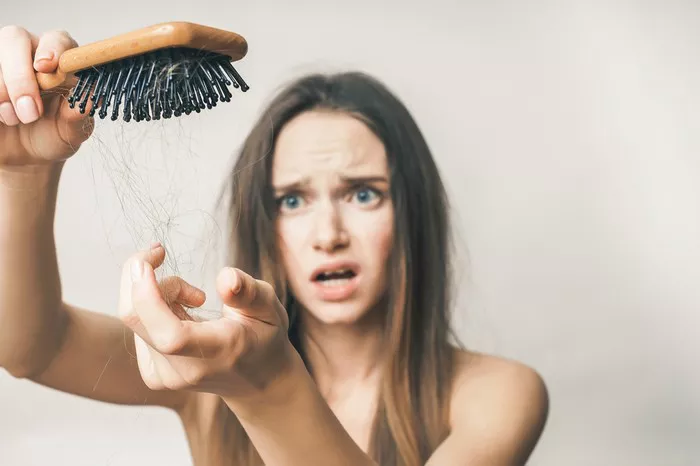Hair loss, a concern that echoes across cultures and generations, is often attributed to various factors. Among these, the potential impact of emotional stress on hair health has been a subject of both curiosity and concern. In this article, we embark on a journey to uncover the intricate connection between emotional stress and hair loss, backed by scientific insights and expert opinions.
What is Emotional Stress?
Emotional stress refers to the psychological and physiological response when individuals encounter situations that challenge their emotional well-being and coping abilities. It can arise from various sources such as work pressures, relationship conflicts, financial difficulties, or major life changes. Stress triggers the body’s “fight or flight” response, releasing stress hormones like cortisol and adrenaline. This can lead to symptoms like anxiety, irritability, difficulty concentrating, sleep disturbances, and even physical symptoms like headaches. Prolonged emotional stress without effective coping strategies can contribute to mental health issues and negatively impact overall well-being.
The Hair Growth Cycle:
Understanding the hair growth cycle is essential in deciphering the potential link between emotional stress and hair loss. Hair growth isn’t a continuous process; rather, it occurs in distinct phases: anagen (growth), catagen (transition), and telogen (resting). Emotional stress can disrupt this cycle, pushing a higher number of hairs into the telogen phase, eventually leading to increased shedding.
Can Emotional Stress Cause Hair Loss?
Emotional stress can lead to hair loss. High levels of stress trigger the body to enter a “fight or flight” response, diverting resources away from non-essential functions like hair growth. This can disrupt the hair growth cycle, leading to increased shedding and potentially causing hair loss conditions like telogen effluvium or alopecia areata. Stress also affects hormone levels and the immune system, further contributing to hair loss. Managing stress through relaxation techniques, exercise, and seeking support can help mitigate its impact on hair health. If severe hair loss persists, consulting a medical professional is advisable.
Causes of hair loss other than emotional stress
Hair loss is a multifaceted concern that can be triggered by a variety of factors:
1. Genetic Predisposition:
Genetics often play a significant role in hair loss. If your parents or close relatives have experienced hair thinning or baldness, you might be genetically predisposed to it. Androgenetic alopecia, commonly referred to as male or female pattern baldness, is a hereditary condition that leads to gradual hair loss.
2. Hormonal Changes:
Hormonal changes can lead to hair loss, particularly in women. Conditions such as polycystic ovary syndrome (PCOS) and hormonal fluctuations during pregnancy and menopause can trigger hair thinning. Hormones like dihydrotestosterone (DHT) can negatively impact hair follicles, leading to their gradual miniaturization.
3. Medical Conditions:
Certain medical conditions can manifest as hair loss symptoms. Thyroid disorders, such as hypothyroidism and hyperthyroidism, disrupt hormonal balance and can lead to hair thinning. Autoimmune diseases like alopecia areata cause the immune system to attack hair follicles, resulting in patchy hair loss.
4. Nutritional Deficiencies:
Nutrition plays a crucial role in maintaining healthy hair. Deficiencies in key nutrients like iron, zinc, biotin, and vitamin D can contribute to hair loss. These nutrients are essential for the proper functioning of hair follicles and the production of keratin, the protein that makes up hair strands.
How to Cope with Hair Loss Caused by Emotional Stress?
Coping with stress-induced hair loss involves both emotional and practical steps. Prioritize self-care by practicing relaxation techniques like meditation, deep breathing, and exercise to reduce stress. Reach out to friends, family, or professionals for emotional support. Maintain a balanced diet rich in nutrients that support hair health, including protein, vitamins, and minerals. Gentle hair care routines, avoiding harsh products and styles, can minimize damage. Consult a dermatologist to address underlying issues and explore potential treatments. Embrace hairstyles that boost confidence and consider using hats or scarves if desired. Remember, managing stress positively can help mitigate the effects of hair loss.
See Also: What Is a Good Diet for Hair Growth? Nourishing Your Hair
In Conclusion
While evidence suggests a connection between emotional stress and hair loss, it’s crucial to approach this relationship with nuance and awareness. Emotional stress can certainly impact hair health, but it rarely acts as the lone protagonist. Genetics, hormonal imbalances, and other external factors contribute to the broader narrative of hair loss.
Managing emotional stress is undeniably important for overall well-being. Engaging in stress-reducing practices such as meditation, exercise, and mindful activities can help mitigate potential effects on hair health. However, it’s equally essential to consult with healthcare professionals, such as dermatologists, if you’re experiencing noticeable hair loss.


